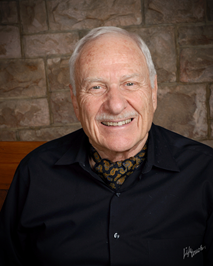- Home
- About
-
Books
- Wisdom for Living: learning to follow your inner guidance
- Terranautics 101: the basics for navigating an uncertain future
- Living in the Power Zone: How Right Use of Power Can Transform Your Relationships
- stories i remember: my pilgrimage to wisdom
- wising up: a youth guide to good living
- wisdom: daily reflections for a new era
- a world treasury of folk wisdom
- Blog
- Other Services
|
True-confession time. I’m what’s called in Catholic circles a contemplative. The more generally used term is mystic. In fact, some 30 years ago, when I was still a Lutheran, my Centering prayer teacher, a Franciscan nun named Sister Joan T., hired me to do a four-book adult-ed series at St. Olaf Catholic Church, Minneapolis, where I was introduced on signs as “Dr. Reynold Feldman, Contemplative.” Now for those who know me, this bit of self-disclosure may be surprising since I am such an extreme extrovert, and the general concept of contemplatives is that they are self-contained, non-talkative introverts. Yet Sister Joan was not wrong. And although my contemplative training comes roughly from the Sufi mystical tradition of Islam, a major inspiration for me as a cradle Jew is the Baal Shem Tov and the mystical order he is credited as having founded, the Hasidim...
0 Comments
I first heard about the Quakers from my mother. Born in 1903 to a very large immigrant family in a Jewish farming community in southern New Jersey, Woodbine by name, she remembered how, during economic hard times, the Quakers had supplied her family with food, clothing, and other needed things. Now my mother, like other Jewish immigrant children of her generation, never had much good to say about Christians in general, but when it came to the Religious Society of Friends, that was a different story. As we would say today, they walked their talk. And as far as Mother was concerned, they were okay...
There’s a song by that name written by someone called Cristy Lane. The second half of the lyrics goes—“. . . I believe in angels/Something good in everything I see/I believe in Angels/When I know the time is right for me/I’ll cross the stream, I have a dream.” (I guess Cristy doesn’t believe in periods, but that’s the English teacher in me speaking so I’ll let it go.) The lyrics are not very clear or persuasive to me. Nonetheless, I too believe in angels. Here’s why...
Dr. Witherspoon was a Scottish-American Presbyterian from Kentucky. He was also a direct descendant of John Witherspoon, the first president of Princeton University and a Presbyterian minister. My professor was also related to the actress Reese Witherspoon, possibly a great uncle. Like Jimmy Carter, Dr. W. taught adult Sunday School at the Presbyterian Church on the Green for all the decades he lived in New Haven. He, like Florine, represented for me what real Christianity was all about...
I was born in November 1939 to a secular Jewish family then living in Kew Gardens, New York. All four of my grandparents had immigrated to the United States in the 1890s from various parts of Eastern Europe: one from Romania, another from Ukraine, and the other two from today’s Belarus. Of these four, only my paternal grandmother, Ida Litzky Feldman from Odessa, was a religious Jew. Her father, my great grandfather whom I never knew, had been what we might call a “holy calligrapher” who wrote the Hebrew characters onto the Torah scrolls used in synagogues. Because of his intimate relationship with the Word of God, moreover, he functioned in his community as a kind of advisor, judge, and psychotherapist rolled into one. Like his daughter, my grandma, he was an observant Orthodox Jew. My father, born in New York City in 1905 as the first of his parents’ three sons, had a strict observance of Judaism enforced on him, sometimes physically, by Grandma Ida. Later, when Grandpa Paul went to sea and Dad had to forego a piano scholarship to the Curtis School of Music in Philadelphia to support his mother and younger brothers, he told his mother that, while he would do his best for her and the boys financially, he would have nothing to do with “her” religion anymore. And apparently, when my older sister and I came along, he made sure not to inflict that kind of religiosity on us. The result was that we got little-to-no Jewish religious training and didn’t celebrate any of the Jewish Holidays...
Today, November 10, 2023 (the date of this writing), I received a lovely if unexpected birthday card from Hawaii. It was from a member of the Honolulu Lions Club and indeed a past District Governor (PDG) of District 50, which includes all the Lions Clubs and members in the 50th State. My 84th birthday happened four days ago, on November 6th, and it’s the tradition of Hawaii’s “Mother Club” to send birthday cards to all its members. Inside was a neatly folded, new $20 bill. Tears came to my eyes. I had joined this club some 25 years ago and remained a loyal member during my remaining eight years in Honolulu. I remember the White Cane Walks through the City to honor the blind and cleaning donated eyeglasses at Ho’o Pono, a local nonprofit supporting the blind and the sight-impaired. These recycled spectacles were then sent to sister clubs in developing countries for distribution to poor individuals for whom the prescriptions were a close fit. I also remember our periodic service projects, usually involving cleaning up some area of town. We also gave annual cash prizes for the best drawings by school kids...
Are they simply the Judeo-Christian equivalent, en masse, of the classical Mercury, messenger of the gods—a fleet of Mercuries delivering messages from Upstairs to us humans here below? Perhaps. In the Hebrew Scriptures they speak for God. But so do the Prophets. That’s what the word means in Greek, spokesperson. In fact, they sometimes talk as if they were God. An example is the angel in the Genesis story of Abraham’s near-sacrifice of Isaac (Gen. 22, 1-19)...
Have you heard of Elmo, saint or otherwise? I hadn’t until I got to Yale as a freshman in the fall of ’56. There I soon learned of the hoary institution’s fabled senior societies, where each club’s handful of senior-class members were sworn to lifelong secrecy. Word about the doings in these closeted spaces were not to be breathed, even to one’s roommate! The most famous one, of course, was “Bones,” that is Skull and Bones, whose august membership includes John Kerry and both Presidents Bush. St. Elmo’s was one of the less prestigious clubs along with Manuscript, where my Hungarian friend the late Dr. Pista Scher was a member as was the late Pennsylvania Senator Jack Heinz of the 57-varieties family...
As I write these words, it’s Hallowe’en 2023. In the trick-or-treat category, the world is being treated to two major wars: the continuing Russian invasion of Ukraine and the recent Israeli incursion into Palestinian Gaza. Ironically, Israel and Ukraine rank one and two in the world, respectively, in their percentage of Jewish-to-non-Jewish citizens. As a Jewish-Christian—I consider myself an Abrahamic since I’m technically also a Muslim—I am aghast at what Hamas did on October 7th over its border in Israel. I am equally aghast at what Israel is now doing in and to Gaza. But I also remember that the world’s most populous religion, originated in the name of the Prince of Peace, is no stranger to war. Think of the Crusades or of armed conflicts between brother Christians who happened to be Protestants versus Catholics. The term “holy war” has to be one of the world’s foremost oxymorons, right up there with “military intelligence.”...
As I write, it’s October 31st. My 84th birthday is scheduled to arrive in six days, on November 6th. Inshallah, if God wills, as our Arab-speaking siblings say! Which brings me to the fact that I’m feeling, in the words of this retired English professor, pretty elegiac. Every fall, when the first cold weather arrives, as happened here last week, the top number of my blood pressure tends to rise significantly. (My 17 years in Hawai`i have obviously taken their toll.) Often, I also get sick around this time—not badly but always enough to get my attention. This year it was several days of pain in my lower abdomen plus chronic fatigue. Sounds like covid, right? My test, however, proved negative. Fortunately, both symptoms are now gone...
I don’t know if this sort of thing happens to you. It never used to happen to me except in this last year, as I come within a month of my 84th birthday on November 6th. (Dear Reader, this particular blog will become available to you some weeks after that date.) So, picture this. I wake up in the morning at, say, 6 a.m., on most days a good hour before my alarm clock is scheduled to go off. Then I discover some strange, often unpleasant new pain or itch that wasn’t there the night before. Okay, so growing old, as the saying goes, is not for sissies. Still, it’s not so much this unwelcome new arrival that upsets me; it’s the fact that, unlike when you trip and cause your knee to bruise, bleed, and hurt, you have no idea what caused this latest arrival in your life to happen. In the case of an itch on the leg, was it a spider that lived between your sheets and decided for reasons of its own to bit you? Or what about when you put your house shoes on, and the top of your left little toe complains of a splitter-like pain? So you check the toe. Nothing! You run your finger up and down the inside top of your left slipper. Nothing! Good! So you return your left foot to the slipper, and there it is again. Ugh! You suffer a double hurt. First, there’s the physical pain. But then, even more painful in its way is the mystery of how this discomfort came to be and, despite your best effort to remedy it, it’s still there and refuses for some time to go away.
I don’t know if this sort of thing happens to you. It never used to happen to me except in this last year, as I come within a month of my 84th birthday on November 6th. (Dear Reader, this particular blog will become available to you some weeks after that date.) So, picture this. I wake up in the morning at, say, 6 a.m., on most days a good hour before my alarm clock is scheduled to go off. Then I discover some strange, often unpleasant new pain or itch that wasn’t there the night before. Okay, so growing old, as the saying goes, is not for sissies. Still, it’s not so much this unwelcome new arrival that upsets me; it’s the fact that, unlike when you trip and cause your knee to bruise, bleed, and hurt, you have no idea what caused this latest arrival in your life to happen...
What a concept, right? The mere thought of it would give some red-blooded, red-state-dwelling Republicans apoplexy. Yet how do I know? Easy. The Bible tells me so. Take for example the Parable of the Day Laborers—my name for it—that Matthew recounts in the 20th Chapter of his Gospel, verses 1-16. (By the way, this passage was read on September 24, 2023, not only in our Episcopal churches but in Catholic and Lutheran ones around the United States that same Sunday. Talk about Ecumenism in action!) Anyway, in this story Jesus tells that the kingdom of heaven resembles a wealthy landowner who goes out to hire day laborers for his vineyard four times in the same day: at 9 a.m., noon, 3 pm, and 5 pm. At the end of the workday, he starts with the last set and ends with the first. Moreover, he gives all the workers the same full-day’s pay. Those who started in the morning and worked through the heat of the day were understandably incensed. Why should those who began their shift in the cool of the evening and worked a mere hour or two get the same pay as them. NO FAIR! In fact, the daylong laborers thought that if the last set got a full day’s pay, the owner would give them much more. Guess again! Knowing the thoughts of the full-day laborers, he said, “…I choose to give to this last the same as I give to you. Am I not allowed to do what I choose with what belongs to me? Or are you envious because I am generous? So the last will be first, and the first will be last.”
My younger daughter, Dr. Christine Feldman-Barrett, Senior Lecturer in Sociology at Griffith University in Queensland, Australia, recently wrote the following message on her Facebook page: “Friends: Today is a much better day already. Thanks for all the love and cheer yesterday. Nothing like an early-morning stroll through the suburban pastoral to get into better spirits. Happy Friday, everyone!” She headed the post with the lovely photo you’ll see at the end of this blog...
Well, to start with, I understand my people to be everybody, no exceptions. In fact, I am in accord with Indigenous Peoples like the North American Indians. When they say “All my relations” as they pass the pipe in a circle, they go beyond people to mean all the children of Mother Earth and Father Sky: the soil, the plants, the rivers, the oceans, the animals. I aim like them to make my family as wide and inclusive. Many U.S. citizens will use the term aliens in reference to undocumented migrants at our borders. I hope that otherworldly aliens are found to exist in my lifetime so that I can include them among my relations as well...
I love things that work. And as for things that don’t, well let’s just say I’m less than enamored of them. To accentuate the positive, I’ll begin with some of the things in my life that have proved successful. At the top of the list are surgeries, whether medical or dental. My very first one took place when I was a little kid, near the end of World War Two. Like a lot of my peer group back then, I suffered from frequent swollen glands and attacks of tonsillitis. It wasn’t until I had my tonsils and adenoids out that that pain in the neck in all its varieties went and stayed away. My next operations were not until many decades later, the first two of which took place at a Kaiser Medical Center in downtown Honolulu...
We all live in circles. They are our personal environments—what the Germans call our Sitz im Leben, our place in life. Therefore, our mission impossible, should we choose to accept it, is to expand those circles, from the smallest to the largest possible. In doing so we become more like our Creator...
I pride myself on my talent for languages. I’ve studied at least twelve and can get around in eight. Not only that, but when it comes to English, I’m a published author with 12 books and have three degrees in English from Yale, the last a Ph.D. But today I spent the better part of an hour listening (and seeing on Zoom) a talk nominally in English by a fellow American native speaker that left me clueless...
Although born into a secular Jewish family, I was exposed to Christian religious services since age 12, when I was sent to an American (Northern) Baptist boarding school in central New Jersey. At the Peddie School, as it was called in 1951, all of us boys—it was a boys boarding school at the time—were required to attend daily chapel. I liked the hymns but found the sermons boring. We Jews, Christians, Buddhists, Muslims, the student’s religion didn’t matter, also had to attend a Sunday church service in town until, in my senior year (1955-56), the Jewish parents complained, and a local rabbi was found to provide us Jewish boys with a weekday service, Sunday being just another weekday for Jews. Then, once a month there was a Sunday-morning convocation in our chapel, while every Sunday evening we had vespers there, something we boys referred to as “the Holy Hit Parade” because we could each ask for a favorite hymn during the 30-minutes period...
When I asked the new A.I.-powered Bing search engine what owls were, scientifically speaking, here’s some of what it spit out a second later: “Owls are birds from the order Strigiformes, which includes over 200 species of mostly solitary and nocturnal birds of prey typified by an upright stance, a large, broad head, binocular vision, binaural hearing, sharp talons, and feathers adapted for silent flight. . . . They are known for their upright posture, significant, broad head, excellent vision and hearing, silent flight, camouflage, sharp talons, and hooked beak.” But when we ask what these unique birds are known for, world cultures have answered differently...
One of the few lines of French poetry I know by heart is from Baudelaire (d. 1867): “Où sont les neiges d’antan?” (“Where are the snows of yesteryear?”) Indeed. One of the chief properties of snow is its short lifespan. There are exceptions, to be sure, as in arctic regions. But even that’s changing thanks to global warming. Here in temperate zones, the plow-constructed seemingly indestructible dirt-streaked mountains of the stuff in parking lots eventually trickle away in the warming days of spring...
Now we’ve all heard of Rumi. That is, Jalal al-Din Muhammad, the Mevlana or Master (1207-1273), the Persian-born poet, scholar, and mystic. His Sufi order, or lineage, is known as the Medlevis, or more familiarly, the Whirling Dervishes. There is even a contemporary American offshoot called MOA, the Medlevi Order of America. I should know since a married couple, friends of mine in Hawaii, are leaders of the Order there and, yes, they can both whirl. Rumi, as he is commonly known, has had much of his written wisdom translated into English and no doubt into many other languages. His longest work is a 50,000-line poem, The Masnavi, considered “the Quran in Persian,” which instructs Sufis and others on how to come into the love of God. He got the name Rumi, by the way, from the place where he lived, worked, and died in southwestern Turkey. The city, Konya, was considered in its day the Rome of Turkey, in Turkish “Rum.” Hence, as someone closely associated with that place, he became known as “Rumi,” literally “Roman.” Among his many famous sayings, one of my favorites is—“Out beyond ideas of wrong-doing and right-doing, there is a field. I’ll meet you there.”
There are many good features in United HealthCare’s Medicare Select program that both Cedar, my wife, and I have. One that we have used for nearly 14 years is free membership in our local YMCA. (Actually, this feature enables us to use Y’s all over the country.) Apparently, the federal government’s research concluded that seniors on Medicare who work out regularly are less likely to cost the government money for medical treatment. That enabled the program to negotiate free memberships at health clubs nationally, the YMCA being one of them...
|
|









